![Globe Unity Orchestra & The Choir Of The NDR-Broadcast: Hamburg '74 [VINYL] (Cien Fuegos) Globe Unity Orchestra & The Choir Of The NDR-Broadcast: Hamburg '74 [VINYL] (Cien Fuegos)](https://www.teuthida.com/productImages/misc4/31250.jpg)
A tremendous concert from the 1974, 105th NDR Jazzworkshop at the Funkhaus Hamburg from the influential free jazz ensemble Globe Unity Orchestra with a who's who of European Free Jazz players (Brotzmann, schoof, Parker, Rutherford, Bailey, Kowald, Bennink, Lovens, Schlippenbach, &c) in a Satirical Oratorio in seven parts with the NDR Choir, plus Schoof's "Kontraste Und Synthesen".
Out of Stock
Quantity in Basket: None
Log In to use our Wish List
Shipping Weight: 8.00 units
Sample The Album:
Manfred Schoof-trumpet
Kenny Wheeler-trumpet
Peter Brotzmann-reeds
Rudiger Carl-alto saxophone, tenor saxophone
Gerd Dudek-soprano saxophone, tenor saxophone
Evan Parker-soprano saxophone, tenor saxophone
Michel Pilz-bass clarinet
Gunter Christmann-trombone
Paul Rutherford-trombone
Derek Bailey-guitar
Alexander von Schlippenbach-piano
Peter Kowald-double bass, tuba
Han Bennink-drums, percussion, clarinet
Paul Lovens-drums, percussion
Click an artist name above to see in-stock items for that artist.
UPC: 9120036683457
Label: Cien Fuegos
Catalog ID: CF 024LP
Squidco Product Code: 31250
Format: LP
Condition: New
Released: 2022
Country: Austria
Packaging: LP
Recorded during the 105th NDR Jazzworkshop, at the Funkhaus Hamburg, in Hamburg, Germany, on November 19th, 1974, by Werner Munchmeyer. Originally released in 1979 as a vinyl LP on FMP Records with catalog code FMP 0650.
"This date by the Globe Unity Orchestra featured pianist Alexander Von Schlippenbach, guitarist Derek Bailey, drummers Paul Lovens and Han Bennink, saxophonists Peter Brötzmann, Evan Parker, Rüdiger Carl, Gerd Dudek, and Michel Piz, bassist Peter Kowald, trumpeters Kenny Wheeler and Manfred Schoof , and trombonists Paul Rutherford and Günter Christmann -- a completely gone lineup at the height of Euro free jazz in 1974. To add to the drama, the band is joined by the Choir of the NDR Broadcast under the direction of Helmut Franz. All of this was captured at the NDR Jazz Workshop.
The first piece here, titled "Hamburg '74," is nearly half-an-hour in length and was scripted by Von Sclippenbach. A spoken word introduction is followed by chatter from the chorus, then by slow, quiet, atonal squeaks and squeals from reeds and brass. Before long the choir enters singing long, languorous anthemic lines in counterpoint before all hell breaks loose at six minutes. Here the band kicks its improvisation in full-force and the choir improvises, too -- individually and collectively! It is one of the most exciting moments in free jazz. Its only equal is that moment on Coltrane's Live In Seattle where he and Pharoah Sanders, going as far as they could go on their horns, put them down and start hollering their improvisations. What happens for the next 20 minutes is indescribably beautiful, wild and wondrous and terrifying in places.
The second piece here, "Contrast and Synthesis," is nearly 20 minutes, and though a little more closely scripted in the opening section, it is nonetheless full of pathos and drama as well. Here too, once the band starts collectively improvising away form the composed lines and the choir follows them, the entire sky opens in a fantastic cacophony."-Thom Jurek, All Music
Get additional information at All Music
Artist Biographies
• Show Bio for Manfred Schoof "Manfred Schoof (born 6 April 1936) is a German jazz trumpeter. Schoof was born in Magdeburg and studied music in Kassel and Cologne. He is a founder of European free jazz and collaborated with Albert Mangelsdorff, Peter Brötzmann, Mal Waldron, and Irène Schweizer. He has interpreted Die Soldaten, an operatic work by the contemporary composer Bernd Alois Zimmermann. Schoof won various jazz prizes and is involved in the German musical rights association. Since 2007 he has been chairman of the Union Deutscher Jazzmusiker. He has been a professor in Cologne since 1990." ^ Hide Bio for Manfred Schoof • Show Bio for Kenny Wheeler "Kenneth Vincent John Wheeler, OC (14 January 1930 - 18 September 2014) was a Canadian composer and trumpet and flugelhorn player, based in the U.K. from the 1950s onwards. Most of his performances were rooted in jazz, but he was also active in free improvisation and occasionally contributed to rock music recordings. Wheeler wrote over one hundred compositions and was a skilled arranger for small groups and large ensembles. Wheeler was the patron of the Royal Academy Junior Jazz course. Wheeler was born in Toronto, Ontario, on 14 January 1930. Growing up in Toronto, he began playing cornet at age 12, and became interested in jazz in his mid-teens. Wheeler spent a year studying composition at the Royal Conservatory in Toronto in 1950. In 1952 he moved to Britain. He found his way into the London jazz scene of the time, playing in groups led by Tommy Whittle, Tubby Hayes, and Ronnie Scott. In the late 1950s, he was a member of Buddy Featherstonhaugh's quintet together with Bobby Wellins. Throughout the sixties, he worked with John Dankworth, and also formed part of (Eric Burdon and) the Animals' Big Band that made its only public appearance at the 5th Annual British Jazz & Blues Festival in Richmond (1965) with tenors Stan Robinson, Dick Morrissey and Al Gay, baritone sax Paul Carroll, and fellow trumpets Ian Carr and Greg Brown. In 1968, Wheeler appeared on guitarist Terry Smith's first solo album, Fall Out. Wheeler performed and recorded his own compositions with large jazz ensembles throughout his career, beginning with the first album under his own name, Windmill Tilter (1969), recorded with the John Dankworth band. A CD was released by BGO Records in September 2010. The big band album Song for Someone (1973) fused Wheeler's characteristic orchestral writing with passages of free improvisation provided by musicians such as Evan Parker and Derek Bailey, and was also named Album of the Year by Melody Maker magazine in 1975. It has subsequently been reissued on CD by Parker's Psi label. In the mid-1960s, Wheeler became a close participant in the nascent free improvisation movement in London, playing with John Stevens Parker, the Spontaneous Music Ensemble and the Globe Unity Orchestra. Despite the above-noted accomplishments, much of his reputation rests on his work with smaller jazz groups. Wheeler's first small group recordings to gain significant critical attention were Gnu High (1975) and Deer Wan (1977), both for the ECM label (Gnu High is one of the few albums to feature Keith Jarrett as a sideman since his tenure with Charles Lloyd). One exception from the ongoing collaboration with ECM was his rare album on CBC called Ensemble Fusionaire in 1976. This had three other Canadian musicians and was recorded in St. Mary's Church in Toronto for a different character to the sound than on the ECM recordings. Wheeler was the trumpet player in the Anthony Braxton Quartet from 1971 to 1976, and from 1977 he was also a member of the chamber jazz group Azimuth (with John Taylor and Norma Winstone).Later life In 1997 Wheeler received widespread critical praise for his album Angel Song, which featured an unusual "drummerless" quartet of Bill Frisell (guitar), Dave Holland (bass) and Lee Konitz (alto sax). Wheeler died after a short period of frail health at a nursing home in London on 18 September 2014. He was 84 years old." ^ Hide Bio for Kenny Wheeler • Show Bio for Peter Brotzmann "Born Remscheid, Germany on 6 March 1941; soprano, alto, tenor, baritone and bass saxophones, a-clarinet, e-flat clarinet; bass clarinet, tarogato. Peter Brötzmann's early interest was in painting and he attended the art academy in Wuppertal. Being very dissatisfied with the gallery/exhibition situation in art he found greater satisfaction playing with semi-professional musicians, though continued to paint (as well as retaining a level of control over his own records, particularly in record sleeve/CD booklet design). In late 2005 he had a major retrospective exhibition jointly with Han Bennink - two separate buildings separated by an inter-connecting glass corridor - in Brötzmann's home town of Remscheid. Self-taught on clarinets, he soon moved to saxophones and began playing swing/bebop, before meeting Peter Kowald. During 1962/63 Brötzmann, Kowald and various drummers played regularly - Mingus, Ornette Coleman, etc. - while experiencing freedoms from a different perspective via Stockhausen, Nam June Paik, David Tudor and John Cage. In the mid 1960s, he played with American musicians such as Don Cherry and Steve Lacy and, following a sojourn in Paris with Don Cherry, returned to Germany for his unorthodox approach to be accepted by local musicians like Alex von Schlippenbach and Manfred Schoof. The trio of Peter Brötzmann, Peter Kowald and Sven-Ake Johansson began playing in 1965/66 and it was a combination of this and the Schoof/Schlippenbach Quintet that gave rise to the first Globe Unity Orchestra. Following the self-production of his first two LPs, For Adolphe Sax and Machine gun for his private label, BRÖ, a recording for Manfred Eicher's 'Jazz by Post' (JAPO) [Nipples], and a number of concert recordings with different sized groups, Brötzmann worked with Jost Gebers and started the FMP label. He also began to work more regularly with Dutch musicians, forming a trio briefly with Willem Breuker and Han Bennink before the long-lasting group with Han Bennink and Fred Van Hove. As a trio, and augmented with other musicians who could stand the pace (e.g. Albert Mangelsdorff on, for example, The Berlin concert), this lasted until the mid-1970s though Brötzmann and Bennink continued to play and record as a duo, and in other combinations, after this time. A group with Harry Miller and Louis Moholo continued the trio format though was cut short by Miller's early death. The thirty-plus years of playing and recording free jazz and improvised music have produced, even on just recorded evidence, a list of associates and one-off combinations that include just about all the major figures in this genre: Derek Bailey (including performances with Company (e.g. Incus 51), Cecil Taylor, Fred Hopkins, Rashied Ali, Evan Parker, Keiji Haino, Misha Mengelberg, Anthony Braxton, Marilyn Crispell, Andrew Cyrille, Phil Minton, Alfred 23 Harth, Tony Oxley. Always characterised as an energy player - and the power-rock setting of Last Exit with Ronald Shannon Jackson, Sonny Sharock and Bill Laswell, or his duo performances with his son, Casper, did little to disperse this conviction - his sound is one of the most distinctive, life-affirming and joyous in all music. But the variety of Brötzmann's playing and projects is less recognised: his range of solo performances; his medium-to-large groups and, in spite of much ad hoc work, a stability brought about from a corpus of like- minded musicians: the group Ruf der Heimat; pianist Borah Bergman; percussionist Hamid Drake; and Die like a dog, his continuing tribute to Albert Ayler, with Drake, William Parker and Toshinori Kondo. Peter Brötzmann continues a heavy touring schedule which, since 1996 has seen annual visits to Japan and semi-annual visits to the thriving Chicago scene where he has played in various combinations from solo through duo (including one, in 1997, with Mats Gustafsson) to large groups such as the Chicago Octet/Tentet, described below. He has also released a number of CDs on the Chicago-based Okka Disk label, including the excellent trio with Hamid Drake and the Moroccan Mahmoud Gania, at times sounding like some distant muezzin calling the faithful to become lost in the rhythm and power of the music. The "Chicago Tentet" was first organized by Brötzmann with the assistance of writer/presenter John Corbett in January 1997 as an idea for a one-time octet performance that included Hamid Drake and Michael Zerang (drums), Kent Kessler (bass) and Fred Lomberg-Holm (cello), Ken Vandermark and Mars Williams (reeds), and Jeb Bishop (trombone). The first meeting was extremely strong and warranted making the group an ongoing concern and in September of that same year the band was expanded to include Mats Gustafsson (reeds) and Joe McPhee (brass) as permanent members (with guest appearances by William Parker (bass), Toshinori Kondo (trumpet/electronics), and Roy Campbell (trumpet) during its tenure) - all in all a veritable who's who of the contemporary improvising scene's cutting edge. Though the Tentet is clearly led by Brötzmann and guided by his aesthetics, he has been committed to utilizing the compositions of other members in the ensemble since the beginning. This has allowed the band to explore an large range of structural and improvising tactics: from the conductions of Mats Gustafsson and Fred Lonberg-Holm, to the vamp pieces of Michael Zerang and Hamid Drake, to compositions using conventional notation by Ken Vandermark and Mars Williams, to Brötzmann's graphic scores - the group employs almost every contemporary approach to composing for an improvising unit. This diversity in compositional style, plus the variety in individualistic approaches to improvisation, allows the Tentet to play extremely multifaceted music. As the band moves from piece to piece, it explores intensities that range from spare introspection to all out walls of sound, and rhythms that are open or free from a steady pulse to those of a heavy hitting groove. It is clear that the difficult economics of running a large band hasn't prevented the group from continuing to work together since its first meeting. Through their effort they've been able to develop an ensemble sound and depth of communication hard to find in a band of any size or style currently playing on the contemporary music scene." ^ Hide Bio for Peter Brotzmann • Show Bio for Rudiger Carl "Rüdiger Carl, Born 1944, Goldap (East Prussia); accordion, saxophone, clarinet, arranger, composer. Rüdiger Carl has been involved in improvised music from 1968, recording his first record in January 1972 and then playing with a wide range of musicians including Arjen Gorter, Makaya Ntshoko, Louis Moholo, Maarten van Regteren Altena, Tristan Honsinger, Johnny Dyani and Han Bennink. His long-standing partnership with Irene Schweizer began in 1973 and continues to the present day and for a three year period, from 1973 to 1976 he was also a member of Globe Unity Orchestra. He began to give solo performances in 1977 and in 1978 started two other long-term professional partnerships, with Sven-Åke Johansson and Hans Reichel. All three musicians were members of the Bergisch-Brandenburgisches Quartett (the fourth member being Ernst-Ludwig Petrowsky) and they have both appeared in duos with Carl, Carl and Johansson are members of the 'Swing Dance Band' (with Alexander von Schlippenbach and Jay Oliver), Carl and Reichel have been members of the September Band since 1993, and the trio of Carl/Reichel/Johansson has itself been performing since 1994 (see below). Rüdiger Carl has probably made the most striking change in improvised music, virtually forsaking the quintessentially jazz instrument - the tenor saxophone - and taking up one with totally different associations and means of expression: the accordion. This was manifest in recordings on Buben, his duets with Hans Reichel, and though he continued to play the two instruments virtually side-by-side ( in addition to clarinet), the - what some might deem to be drastic - move was completed and cemented on Vorn which even featured a version of Paul McCartney's Those were the days. Following this recording, the COWWS Quintet was formed, continuing Carl's musical relationship with Schweizer and adding Philipp Wachsmann, Jay Oliver and Stephen Wittwer. While quite varied moods are apparent from the recorded output of the group, the lasting impression is one of folk and song influences, emphasised by Carl's accordion. With the death of Oliver in 1993, the bass chair was taken by Barre Phillips for approximately one year and then by Arjen Gorter. Rüdiger Carl has continued to work with other musicians in addition to COWWS. Thus, the Canvas Trio was formed in 1991 with Joëlle Léandre and Carlos Zingaro, and in the same year he played in duos with Mayo Thompson of the Red Crayolas (who contributed to the second COWWS record) and Joëlle Léandre. From 1988 to 1992 he was concert organiser of 'Musik im Portikus' in Frankfurt/M. and from 1994 has been leader of the F.I.M. Orchester in Frankfurt/M. His most recent involvements have been in an occasional duo with Burkhard Kunkel, zither and in the ironic electronics trio Blank with Oliver Augst and Christoph Korn. Over a three-year period Blank worked with American painter and poet Raymond Pettibon, initially at the Philharmonie in Cologne (released on GROB) and later documented in the hörspiel Long live the people of the revolution, released on Eventuell." ^ Hide Bio for Rudiger Carl • Show Bio for Gerd Dudek "Gerhard Rochus "Gerd" Dudek (born 28 September 1938) is a German jazz tenor saxophonist, soprano saxophonist, clarinetist and flautist. Dudek studied clarinet privately and attended music school in the 1950s before joining a big band led by his brother Ossi until 1958. During the early 1960s, Dudek played in the Berliner Jazz Quintet, in Karl Blume's group and in Kurt Edelhagen's orchestra until 1965. He then became interested in free music and joined Manfred Schoof's quintet. Dudek took part in the first sessions of The Globe Unity Orchestra in 1966, and played with them at various time into the 1980s. He also worked with many other European free musicians and composers, including Alexander von Schlippenbach, Loek Dikker and The Waterland Ensemble And European Jazz Quintet. He is best known for his work with Manfred Schoof, Wolfgang Dauner, Lala Kovacev, the Globe Unity Orchestra, Berlin Contemporary Jazz Orchestra, Albert Mangelsdorff, Don Cherry and George Russell." ^ Hide Bio for Gerd Dudek • Show Bio for Evan Parker "Evan Parker was born in Bristol in 1944 and began to play the saxophone at the age of 14. Initially he played alto and was an admirer of Paul Desmond; by 1960 he had switched to tenor and soprano, following the example of John Coltrane, a major influence who, he would later say, determined "my choice of everything". In 1962 he went to Birmingham University to study botany but a trip to New York, where he heard the Cecil Taylor trio (with Jimmy Lyons and Sunny Murray), prompted a change of mind. What he heard was "music of a strength and intensity to mark me for life ... l came back with my academic ambitions in tatters and a desperate dream of a life playing that kind of music - 'free jazz' they called it then." Parker stayed in Birmingham for a time, often playing with pianist Howard Riley. In 1966 he moved to London, became a frequent visitor to the Little Theatre Club, centre of the city's emerging free jazz scene, and was soon invited by drummer John Stevens to join the innovative Spontaneous Music Ensemble which was experimenting with new kinds of group improvisation. Parker's first issued recording was SME's 1968 Karyobin, with a line-up of Parker, Stevens, Derek Bailey, Dave Holland and Kenny Wheeler. Parker remained in SME through various fluctuating line-ups - at one point it comprised a duo of Stevens and himself - but the late 1960s also saw him involved in a number of other fruitful associations. He began a long-standing partnership with guitarist Bailey, with whom he formed the Music Improvisation Company and, in 1970, co-founded Incus Records. (Tony Oxley, in whose sextet Parker was then playing, was a third co-founder; Parker left Incus in the mid-1980s.) Another important connection was with the bassist Peter Kowald who introduced Parker to the German free jazz scene. This led to him playing on Peter Brötzmann's 1968 Machine Gun, Manfred Schoof's 1969 European Echoes and, in 1970, joining pianist Alex von Schlippenbach and percussionist Paul Lovens in the former's trio, of which he is still a member: their recordings include Pakistani Pomade, Three Nails Left, Detto Fra Di Noi, Elf Bagatellen and Physics. Parker pursued other European links, too, playing in the Pierre Favre Quartet (with Kowald and Swiss pianist Irene Schweizer) and in the Dutch Instant Composers Pool of Misha Mengelberg and Han Bennink. The different approaches to free jazz he encountered proved both a challenging and a rewarding experience. He later recalled that the German musicians favoured a "robust, energy-based thing, not to do with delicacy or detailed listening but to do with a kind of spirit-raising, a shamanistic intensity. And l had to find a way of surviving in the heat of that atmosphere ... But after a while those contexts became more interchangeable and more people were involved in the interactions, so all kinds of hybrid musics came out, all kinds of combinations of styles." A vital catalyst for these interactions were the large ensembles in which Parker participated in the 1970s: Schlippenbach's Globe Unity Orchestra, Chris McGregor's Brotherhood of Breath, Barry Guy's London Jazz Composers Orchestra (LJCO) and occasional big bands led by Kenny Wheeler. In the late 70s Parker also worked for a time in Wheeler's small group, recording Around Six and, in 1980, he formed his own trio with Guy and LJCO percussionist Paul Lytton (with whom he had already been working in a duo for nearly a decade). This group, together with the Schlippenbach trio, remains one of Parker's top musical priorities: their recordings include Tracks, Atlanta, Imaginary Values, Breaths and Heartbeats, The Redwood Sessions and At the Vortex. In 1980, Parker directed an Improvisers Symposium in Pisa and, in 1981, he organised a special project at London's Actual Festival. By the end of the 1980s he had played in most European countries and had made various tours to the USA, Canada, Australia, New Zealand and Japan. ln 1990, following the death of Chris McGregor, he was instrumental in organising various tributes to the pianist and his fellow Blue Notes; these included two discs by the Dedication Orchestra, Spirits Rejoice and lxesa. Though he has worked extensively in both large and small ensembles, Parker is perhaps best known for his solo soprano saxophone music, a singular body of work that in recent years has centred around his continuing exploration of techniques such as circular breathing, split tonguing, overblowing, multiphonics and cross-pattern fingering. These are technical devices, yet Parker's use of them is, he says, less analytical than intuitive; he has likened performing his solo work to entering a kind of trance-state. The resulting music is certainly hypnotic, an uninterrupted flow of snaky, densely-textured sound that Parker has described as "the illusion of polyphony". Many listeners have indeed found it hard to credit that one man can create such intricate, complex music in real time. Parker's first solo recordings, made in 1974, were reissued on the Saxophone Solos CD in 1995; more recent examples are Conic Sections and Process and Reality, on the latter of which he does, for the first time, experiment with multi-tracking. Heard alone on stage, few would disagree with writer Steve Lake that "There is, still, nothing else in music - jazz or otherwise - that remotely resembles an Evan Parker solo concert." While free improvisation has been Parker's main area of activity over the last three decades, he has also found time for other musical pursuits: he has played in 'popular' contexts with Annette Peacock, Scott Walker and the Charlie Watts big band; he has performed notated pieces by Gavin Bryars, Michael Nyman and Frederic Rzewski; he has written knowledgeably about various ethnic musics in Resonance magazine. A relatively new field of interest for Parker is improvising with live electronics, a dialogue he first documented on the 1990 Hall of Mirrors CD with Walter Prati. Later experiments with electronics in the context of larger ensembles have included the Synergetics - Phonomanie III project at Ullrichsberg in 1993 and concerts by the new EP2 (Evan Parker Electronic Project) in Berlin, Nancy and at the 1995 Stockholm Electronic Music Festival where Parker's regular trio improvised with real-time electronics processed by Prati, Marco Vecchi and Phillip Wachsmann. "Each of the acoustic instrumentalists has an electronic 'shadow' who tracks him and feeds a modified version of his output back to the real-time flow of the music." The late 80s and 90s brought Parker the chance to play with some of his early heroes. He worked with Cecil Taylor in small and large groups, played with Coltrane percussionist Rashied Ali, recorded with Paul Bley: he also played a solo set as support to Ornette Coleman when Skies of America received its UK premiere in 1988. The same period found Parker renewing his acquaintance with American colleagues such as Anthony Braxton, Steve Lacy and George Lewis, with all of whom he had played in the 1970s (often in the context of London's Company festivals). His 1993 duo concert with Braxton moved John Fordham in The Guardian to raptures over "saxophone improvisation of an intensity, virtuosity, drama and balance to tax the memory for comparison". Parker's 50th birthday in 1994 brought celebratory concerts in several cities, including London, New York and Chicago. The London performance, featuring the Parker and Schlippenbach trios, was issued on a highly-acclaimed two-CD set, while participants at the American concerts included various old friends as well as more recent collaborators in Borah Bergman and Joe Lovano. The NYC radio station WKCR marked the occasion by playing five days of Parker recordings. 1994 also saw the publication of the Evan Parker Discography, compiled by ltalian writer Francesco Martinelli, plus chapters on Parker in books on contemporary musics by John Corbett and Graham Lock. Parker's future plans involve exploring further possibilities in electronics and the development of his solo music. They also depend to a large degree on continuity of the trios, of the large ensembles, of his more occasional yet still long-standing associations with that pool of musicians to whose work he remains attracted. This attraction, he explained to Coda's Laurence Svirchev, is attributable to "the personal quality of an individual voice". The players to whom he is drawn "have a language which is coherent, that is, you know who the participants are. At the same time, their language is flexible enough that they can make sense of playing with each other ... l like people who can do that, who have an intensity of purpose." " ^ Hide Bio for Evan Parker • Show Bio for Michel Pilz "Probably one of the most recognizable jazz musicians in Europe today, tall and lanky Michel Pilz and his long bass-clarinet are a popular club and concert feature.Considered early on as a successor to the great Eric Dolphy, Michel has dedicated his career exclusively to the mastery of this extraordinary woodwind. He was born in Germany (Bad Neustadt/Saale), and grew up in Luxembourg, where he studied classical clarinet at the conservatory. He then opted for a career in jazz playing the larger instrument, first joining the Manfred Schoof Quintet in 1968 (with Alex von Schlippenbach, Buschi Niebergall and Mani Neumeier). In the 1970's, Michel toured in the Near East, Asia and South America with the quintet, the "German All Stars," the "Globe Unity Orchestra," and, in Japan, with trumpeter Itaru Oki. Over the years, he has performed at numerous international jazz festivals, including Montreux, Bombay, Tokyo, Frankfurt and Chateau-Vallon. In October, 1999, his trio represented Germany at the European Jazz Festival in Damascus. Michel has produced several recordings, including, most recently, "Jamabiko" (MP 841) and "Melu-Sina" (Drops CD 16). His next CD, to be entitled "Arbor," will be out in early 2001. Today, Michel resides again in Luxembourg, where he teaches and plays local engagements. He also travels frequently for appearances in Germany, France, and elsewhere in Europe. He plays primarily with the Michel Pilz Trio, including Christian Ramond on bass and Klaus Kugel on drums. Itaru Oki often joins the group to form the Pilz-Oki Quartet for selected dates. The potential of music as a means of enhancing international understanding became clear to Michel with his first overseas experiences. He has consistently attempted to include local musicians in his international appearances, believing the promotion of such relationships to be a critical element in the musician's art." ^ Hide Bio for Michel Pilz • Show Bio for Gunter Christmann "Born 1942; trombone, cello, film. Günter Christmann has been working since 1968 as a free-lance musician specialising in improvised musics - particularly free improvisation - and their links with other art forms. In the late 1960s and throughout the 1970s, he was primarily known for his trombone (and less frequent double bass) playing in a variety of groupings: Rüdiger Carl group (1969-1972); Peter Kowald Quintett (1972-1974); a duo with Detlef Schönenberg (1972-1982) which itself included many collaborations - for example with the electronics player Harald Bojé - as a member of the Globe Unity Orchestra from 1973 onwards; and in duo with Tristan Honsinger (1978-1981). In the mid-1970s Christmann also began exploring the possibilities of solo playing, sometimes including electro-acoustic manipulations and montage techniques. Since 1980 Günter Christmann has played regularly with Paul Lovens - for example, in the excellent (and recorded) trio with Maarten Altena, in duo, and in trio with Mats Gustafsson - in duo with bass player Torsten Müller (generally under the name of their recording, Carte blanche, as a member of King Übü Orchestrü (1987-1994), and in duo with Alexander Frangenheim. He also started to feature cello in his playing, not as a second instrument to trombone but as an equal. From 1979 Günter Christmann has been interested in working with different combinations of improvisers from an international pool, often combining musicians with dancers, actors and acrobats. These groupings have gone under the generic name of VARIO (now up to VARIO 35), with many combinations having been documented on LP and CD (see list below). VARIO concerts have included: Langenhagen Jazz 1979/1981/1983; Moers 1981/1983; Actual London 1981; Pisa 1982; Osnabrück 1982; Utrecht 1982; a tour of South and Central America in 1983 (Mexico, Columbia, Dominican Republic, Peru, Chile, Argentina, Uruguay, Brazil); Zürich 1984; Hannover 1985; Bremen 1985; Paris 1992; Hannover 1993; Den Haag 1994; Stuttgart 1995; Nickelsdorff 1998; Hannover 1998. Artists who have participated in VARIO formations include: Maarten Altena; Regina Baumgart (dancer); Steve Beresford; Udo Blickensdorf (acrobat); Lindsay Cooper; Axel Dörner; Katie Duck; Alexander Frangenheim; Wolfgang Fuchs; Mats Gustafsson; Andy Geer (pantomime); Gerd Gläsmer (drums); Michael Griener (percussion); Ulrich Gumpert; Bernd Halleck (actor); Shelley Hirsch; Tristan Honsinger; Guus Janssen; Sven-Åke Johannson; Theo Joling (clown); Peter Kowald; Gyde Knebusch (harp); Thomas Lehn; Paul Lovens; Rudi Mahall (bass clarinet); Radu Malfatti; Phil Minton; Torsten Müller; Christian Munthe; Maggie Nicols; Evan Parker; Melvyn Poore; Jon Rose; John Russell; Jo Sachse; Wolfgang Schliemdun (percussion); Detlef Schönenberg; Irène Schweizer; Günter Sommer; LaDonna Smith; Mariano Suarez (trumpet); Martin Theurer; Roger Turner; Peter van Bergen; Davey Williams; Stephan Wittwer. Even outside VARIO, Christmann has longstanding interests in bringing together similar-minded artists from a variety of disciplines. This started in 1974 through a collaboration with dancer/choreographer Pina Bausch and was later continued with Elisabeth Clark and Regina Baumgart. These early experiments led to his interest in film, particularly the relationship between improvising musicians and experimental film-makers; his current work in this area goes under the banner Deja-vu, being a sequence of music-theatre scenes in which live music, acting, films and sound collage are brought together. At its centre is the playing musician who works both with and against the film and whose relationship with the situation on stage in constantly changing. Advantages are taken of the ability of film to snatch up, to double and enlarge, and to fragment what would otherwise be a traditional relationship between action, scenery and person. This results in an interchange and transformation of themes, properties and associations, and movement between illusion and reality. The films are by Günter Christmann, music is provided by Christmann and Michael Griener, and technical assistance is provided by Elke Schipper." ^ Hide Bio for Gunter Christmann • Show Bio for Paul Rutherford "Paul William Rutherford (29 February 1940 - 5 August 2007) was an English free improvising trombonist. Born in Greenwich, South East London, Rutherford initially played saxophone but switched to trombone. During the 1960s, he taught at the Guildhall School of Music and Drama. In 1970, Rutherford, guitarist Derek Bailey and bassist Barry Guy formed the improvising group Iskra 1903, which lasted until 1973. The formation was documented on a double album from Incus, later reissued with much bonus material on the 3-CD set Chapter One (Emanem, 2000). A film soundtrack was separately released as Buzz Soundtrack. Iskra 1903 was one of the earliest free improvising groups to omit a drummer/percussionist, permitting the players to explore a range of textures and dynamics which set it apart from such other contemporary improvising ensembles as SME and AMM. The group's unusual name is the Russian word for "spark"; it was the title of the Iskra revolutionary newspaper edited by Lenin. The "1903" designation means "20th century music for trio"; occasionally Evan Parker played with the group (Iskra 1904) and Rutherford also at one point assembled a 12-piece ensemble called, inevitably, Iskra 1912. The group was later revived with Philipp Wachsmann replacing Bailey, a phase of the group's life that lasted from roughly 1977 to 1995; its earlier work is documented on Chapter Two (Emanem, 2006) and its final recordings were issued on Maya (Iskra 1903) and Emanem (Frankfurt 1991). Rutherford also played with Globe Unity Orchestra, London Jazz Composer's Orchestra, Centipede, the Mike Westbrook Orchestra, and the Orckestra, a merger of avant-rock group Henry Cow, the Mike Westbrook Brass Band and folk singer Frankie Armstrong. He also played a very small number of gigs with Soft Machine. He is perhaps most famous for solo trombone improvisations. His album The Gentle Harm of the Bourgeoisie is a landmark recording in solo trombone and his 1983 Trio album Gheim, recorded at the Bracknell Jazz Festival is another acclaimed work. Rutherford died of cirrhosis of the liver and a ruptured aorta on 5 August 2007, aged 67." ^ Hide Bio for Paul Rutherford • Show Bio for Derek Bailey "Derek Bailey (29 January 1930 - 25 December 2005) was an English avant-garde guitarist and leading figure in the free improvisation movement. Bailey was born in Sheffield, England. A third-generation musician, he began playing the guitar at the age of ten, initially studying music with his teacher and Sheffield City organist C. H. C. Biltcliffe, an experience that he did not enjoy, and guitar with his uncle George Wing and John Duarte. As an adult he worked as a guitarist and session musician in clubs, radio, dance hall bands, and so on, playing with many performers including Morecambe and Wise, Gracie Fields, Bob Monkhouse and Kathy Kirby, and on television programs such as Opportunity Knocks. Bailey's earliest foray into 'what could be called free improvised music' was in 1953 with two other guitarists in their shared flat in Glasgow. He was also part of a Sheffield-based trio founded in 1963 with Tony Oxley and Gavin Bryars called "Joseph Holbrooke" (named after the composer, whose work they never actually played). Although originally performing relatively "conventional" modal, harmonic jazz this group became increasingly free in direction. Bailey moved to London in 1966, frequenting the Little Theatre Club run by drummer John Stevens. Here he met many other like-minded musicians, such as saxophonist Evan Parker, trumpet player Kenny Wheeler and double bass player Dave Holland. These players often collaborated under the umbrella name of the Spontaneous Music Ensemble, recording the seminal album Karyobin for Island Records in 1968. In this year Bailey also formed the Music Improvisation Company with Parker, percussionist Jamie Muir and Hugh Davies on homemade electronics, a project that continued until 1971. He was also a member of the Jazz Composer's Orchestra and Iskra 1903, a trio with double-bass player Barry Guy and tromboneist Paul Rutherford that was named after a newspaper published by the Russian revolutionary Vladimir Lenin. In 1970, Bailey founded the record label Incus with Tony Oxley, Evan Parker and Michael Walters. It proved influential as the first musician-owned independent label in the UK. Oxley and Walters left early on; Parker and Bailey continued as co-directors until the mid-1980s, when friction between the men led to Parker's departure. Bailey continued the label with his partner Karen Brookman until his death in 2005[citation needed]. Along with a number of other musicians, Bailey was a co-founder of Musics magazine in 1975. This was described as "an impromental experivisation arts magazine" and circulated through a network of like-minded record shops, arguably becoming one of the most significant jazz publications of the second half of the 1970s, and instrumental in the foundation of the London Musicians Collective. 1976 saw Bailey instigate Company, an ever-changing collection of like-minded improvisors, which at various times has included Anthony Braxton, Tristan Honsinger, Misha Mengelberg, Lol Coxhill, Fred Frith, Steve Beresford, Steve Lacy, Johnny Dyani, Leo Smith, Han Bennink, Eugene Chadbourne, Henry Kaiser, John Zorn, Buckethead and many others. Company Week, an annual week-long free improvisational festival organised by Bailey, ran until 1994. In 1980, he wrote the book Improvisation: Its Nature and Practice. This was adapted by UK's Channel 4 into a four-part TV series in the early '90s, edited and narrated by Bailey. Bailey died in London on Christmas Day, 2005. He had been suffering from motor neurone disease." ^ Hide Bio for Derek Bailey • Show Bio for Alexander von Schlippenbach "One of Europe's premier free jazz bandleaders, pianist Alexander von Schlippenbach's music mixes free and contemporary classical elements, with his slashing solos often the link between the two in his compositions. Schlippenbach formed The Globe Unity Orchestra in 1966 to perform the piece"Globe Unity, which had been commissioned by the Berliner Jazztage. He remained involved with the orchestra into the '80s. Schlippenbach began taking lessons at eight, and studied at the Staatliche Hochschule for Musik in Cologne with composers Bernd Alois Zimmermann and Rudolf Petzold. He played with Gunther Hampel in 1963, and was in Manfred Schoof's quintet from 1964 to 1967.Schlippenbach began heading various bands after 1967, among them 1970 trio with Evan Parker and Paul Lovens and a duo with Sven-Ake Johansson which they co-formed in 1976. Schlippenbach has also given many solos performances. In the late '80s, he formed the Berlin Contemporary Jazz Orchestra,which has featured a number ofesteemed European avant-garde jazz musicians including Evan Parker, Paul Lovens, KennyWheeler, Misha Mengelberg and Aki Takase. During the 90`s Duo work with Tony Oxley, Sam Rivers and Aki Takase. 1999 started performance and radiorecording of Thelonius Monks complete works, (all the compositions) with Rudi Mahall and his group "Die Enttäuschung"." ^ Hide Bio for Alexander von Schlippenbach • Show Bio for Peter Kowald "Born 1944 in Germany, died 21 September 2002 New York City; double bass, voice, tuba. Peter Brötzmann (Corbett, 1994) recounted that 'there was this young guy trying to play the bass, who was Mr Kowald, at that time seventeen years old. Peter lived with his parents. I had my little studio, so he was always hanging out at my place. But he had to be at home at 10.00, he was drinking milk. But we changed that, very soon. His parents were always very angry with me, because he never showed up at home anymore, he dropped studies of ancient languages, Greek and all that.' By this time (1962) Peter Kowald had been playing bass for two years and, with different drummers the two Peters were playing Mingus, Ornette, and Miles Davis things as well as listening to Coltrane, Stockhausen, Cage et al. Kowald was part of the European tour undertaken by the Carla Bley/Michael Mantler band in 1966 (also featuring Brötzmann) and then came work with other German musicians, membership of the Globe Unity Orchestra and the first recordings: Globe Unity, For Adolphe Sax and Summer 1967, recorded during a brief vacation in London. In particular, Evan Parker credits this visit to London for his invitation to play in the Pierre Favre/Irene Schweizer quartet and his subsequent longstanding involvement with German (and other European) musicians. Kowald's work with Brötzmann continued - on and off - on record at least, to the time of Kowald's death and included the Cooperative Trio with Andrew Cyrille, a duo on the Duos project and a recent mix of free jazz, hip-hop and rap. Peter Kowald was a member of Globe Unity Orchestra for 12 years (1966 to 1978) and for much of this time played less of a side-man role and more of an equal partner - for example, conducting the band - with the person to whom the group has become most associated, Alex von Schlippenbach. His influence is particularly noticeable on Jahrmarkt/Local fair where the two sides of composition are by Kowald (as is the second side of Live in Wuppertal and he is also credited, along with Paul Lovens as 'producing' the record, presumably sorting out the sprawling theatricality and poor sound into two 'meaningful' fragments. In his notes to 20th anniversary, Schlippenbach emphasises the importance of Kowald in creating a programme that became a lot more 'colourful'; while further pointing out that he and Kowald gradually drifted further apart 'until one fine evening after lengthy discussions which resulted in a fight in a pub in Wuppertal, this chapter also closed'. However, before this ending, from 1973 to 1978, Kowald also worked with the Schlippenbach trio (Schlippenbach/ Parker/Paul Lovens), turning it for much of this time into a regular quartet. Throughout his career, Peter Kowald worked with a wide variety of improvising musicians worldwide and in many considered and unusual situations. He recorded bass duets with Barry Guy, Barre Phillips, Peter Jacquemyn, Maarten Altena, Damon Smith and William Parker, released two solo bass recordings, and had regular groups with Leo Smith and Günter Sommer; with Joëlle Léandre and dancer Anne Martin (Trio Tartini); with dancers Cheryl Banks and Arnette de Mille and cellist Muneer Abdul Fataah (Music and Movement Improvisation); a trio with pianist Curtis Clark; a trio with Canadian alto saxophonist Yves Charuest and Louis Moholo; and Principle Life with Jeanne Lee, Klaus Hovman, and Marilyn Mazur. During the period 1980 to 1985 he was a member of the London Jazz Composers' Orchestra. He has spent periods in the US and in Japan and recorded three duo LPs (two CDs) with US, European and Japanese musicians. He also lived in Greece and similarly played and recorded with the Greek musicians Floros Floridis and Ilias Papadopoulos. By contrast, the 12 months May 1994 to May 1995 was designated Kowald's 'Year at home' project which comprised a mixture of solo works - out of which, to some extent, the last solo CD grew (Was da ist) - and group performances. In addition, Peter Kowald collaborated extensively with poets and artists and with the dancers Gerlinde Lambeck, Anne Martin, Tadashi Endo, Patsy Parker, Maria Mitchell, Sally Silvers, Cherly Banks, Arnette de Mille, Sayonara Pereira, and Kazuo Ohno. Specific works included Die klage der kaiserin (1989) with Pina Bausch, Short pieces (since 1989) with Jean Sasportes, The spirit of adventure (1990) with Anastasia Lyra, Wasser in der hand (1990/91) with Christine Brunel, and Futan no sentaku/The burden of choice (1990/91) with Min Tanaka and Butch Morris." ^ Hide Bio for Peter Kowald • Show Bio for Han Bennink "Drummer and multi-instrumentalist Han Bennink was born in Zaandam near Amsterdam in 1942. His first percussion instrument was a kitchen chair. Later his father, an orchestra percussionist, supplied him with a more conventional outfit, but Han never lost his taste for coaxing sounds from unlikely objects he finds backstage at concerts. He is still very fond of playing chairs. In Holland in the 1960s, Bennink was quickly recognized as an uncommonly versatile drummer. As a hard swinger in the tradition of his hero Kenny Clarke, he accompanied touring American jazz stars, including Sonny Rollins, Ben Webster, Wes Montgomery, Johnny Griffin, Eric Dolphy and Dexter Gordon. He is heard with Gordon on the 1969 album "Live at Amsterdam Paradiso" (on the Affinity label) and with Dolphy on 1964s "Last Date" (PolyGram). At the same time, Bennink participated in the creation of a European improvised music which began to evolve a new identity, apart from its jazz roots. With fellow Dutch pioneers, pianist Misha Mengelberg and saxophonist Willem Breuker, he founded the musicians collective Instant Composers Pool in 1967. Bennink anchored various bands led by Mengelberg or Breuker, and appeared in their comic music-theater productions. Bennink attended art school in the 1960s, and is also a successful visual artist in several media, often constructing sculpture from found objects, which may include broken drum heads and sticks. He has designed the covers for many LPs and CDs on which he appears. Bennink is represented by Amsterdam's Galerie Espace, and has been the subject of several one-man shows, including one at the Gemeente Museum in the Hague in 1995. In 1966, Bennink played the US's Newport Jazz Festival with the Mengelberg quartet. From the late 1960s through the '70s Bennink collaborated frequently with Danish, German, English and Belgian musicians, notably saxophonists John Tchicai and Peter Broetzmann, guitarist Derek Bailey and pianist Fred van Hove. Bennink, Broetzmann and van Hove had a longstanding trio well documented on FMP Records. There Bennink also showcased his talents on clarinet, trombone, soprano saxophone and many other instruments, also featured in a series of solo albums he began in 1971. Bennink's many recordings from the 1980s include sessions with Mengelberg's ICP Orchestra (where he remains), South African bassist Harry Miller, soprano saxophonist Steve Lacy, trombonists Roswell Rudd and George Lewis, and big-bandleaders Sean Bergin and Andy Sheppard. From 1988 to'98 Bennink's main vehicle was Clusone 3, with saxophonist and clarinetist Michael Moore and cellist Ernst Reijseger, a band noted for its free-wheeling mix of swinging jazz standards, wide-open improvising, and tender ballads. Clusone played Europe and North America, West Africa, China, Vietnam and Australia, and recorded five CDs for Gramavision, hat Art and Ramboy. Nowadays he is frequently heard with tenor saxophonist Tobias Delius's quartet and in a trio with pianist/keyboardist Cor Fuhler and bassist Wilbert de Joode, and he still collaborates occasionally with jazz luminaries such as Johnny Griffin, Von Freeman and Ray Anderson. A conspicuous feature of Bennink's musical life since the 1960s is the spontaneous duo concert with musicians of many nationalities and musical inclinations; in the '90s he recorded in duo with among others pianists Mengelberg, Irene Schweizer and Myra Melford, guitarist Eugene Chadbourne, trumpeter Dave Douglas and tenor saxophonist Ellery Eskelin. Since 2008 Han Bennink has his own Han Bennink Trio consisting of Han Bennink, Joachim Badenhorst on clarinet and Simon Toldam on piano." ^ Hide Bio for Han Bennink • Show Bio for Paul Lovens "Born in Aachen, Germany, 6 June 1949; Drums, percussion, musical saw, etc. Paul Lovens played the drums as a child. Self-taught, from the age of 14 he played in groups of various jazz styles and popular musics and from 1969 has worked almost exclusively as an improvisor on individually selected instruments. He has worked internationally with most of the leading musicians in free jazz and free improvisation, among whom have included the Globe Unity Orchestra, the Berlin Contemporary Jazz Orchestra, the Schlippenbach trio, Quintet Moderne, Company, and a duo with Paul Lytton. He has undertaken concert tours in more than 40 countries, is a founder member of a musician's cooperative and has produced recordings for his own label, Po Torch Records since 1976. He has worked with painter Herbert Bardenheuer. Despite very rare solo performances, and although giving occasional concerts with ad-hoc groups and an involvement in projects with film, dance and actors, Paul Lovens' main interest and work is musical improvisation in fixed small groups. In the mid-1990s these small groups numbered around 16, of which a few were part of a special selection, called 'vermögen'. Paul Lovens somehow epitomises the free drummer/percussionist who is not there to lay down the beat and kick everyone else into action but to listen, colour, contribute, guide, and occasionally direct, the overall cooperative sound. In concert one cannot fail to be moved by his intensity and concentration and there is an overiding feeling that even the most random events are somehow planned in time. In this respect, there is a nice irony that on the Nothing to read CD with Mats Gustafsson, Lovens describes his kit as consisting of 'selected and unselected drums and cymbals'. Miking seems to be a problem at times with some recordings giving him undue prominence and others insufficient. Good recordings are Elf bagatellen, Nothing to read, Pakistani pomade, and ,stranger than love." ^ Hide Bio for Paul Lovens
3/31/2025
Have a better biography or biography source? Please Contact Us so that we can update this biography.
3/31/2025
Have a better biography or biography source? Please Contact Us so that we can update this biography.
3/31/2025
Have a better biography or biography source? Please Contact Us so that we can update this biography.
3/31/2025
Have a better biography or biography source? Please Contact Us so that we can update this biography.
3/31/2025
Have a better biography or biography source? Please Contact Us so that we can update this biography.
3/31/2025
Have a better biography or biography source? Please Contact Us so that we can update this biography.
3/31/2025
Have a better biography or biography source? Please Contact Us so that we can update this biography.
3/31/2025
Have a better biography or biography source? Please Contact Us so that we can update this biography.
3/31/2025
Have a better biography or biography source? Please Contact Us so that we can update this biography.
3/31/2025
Have a better biography or biography source? Please Contact Us so that we can update this biography.
3/31/2025
Have a better biography or biography source? Please Contact Us so that we can update this biography.
3/31/2025
Have a better biography or biography source? Please Contact Us so that we can update this biography.
3/31/2025
Have a better biography or biography source? Please Contact Us so that we can update this biography.
3/31/2025
Have a better biography or biography source? Please Contact Us so that we can update this biography.
Track Listing:
SIDE A
1. Hamburg '74 (Schlippenbach) (26:29)
SIDE B
1. Kontraste und Synthesen (Schoof) (19:11)
Vinyl Recordings
Improvised Music
Jazz
Free Improvisation
European Improvisation, Composition and Experimental Forms
Large Ensembles
Peter Brotzmann
Schlippenbach
Jazz Reissues
Staff Picks & Recommended Items
New in Improvised Music
Search for other titles on the label:
Cien Fuegos.


![Globe Unity Orchestra & The Choir Of The NDR-Broadcast: Hamburg '74 [VINYL] (Cien Fuegos) Globe Unity Orchestra & The Choir Of The NDR-Broadcast: Hamburg '74 [VINYL] (Cien Fuegos)](https://www.teuthida.com/productImages/full/31250.Full.jpg)
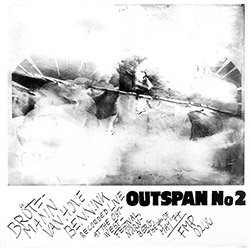

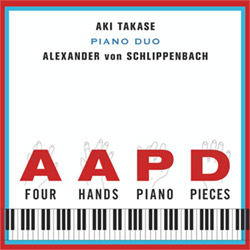


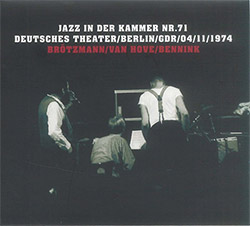

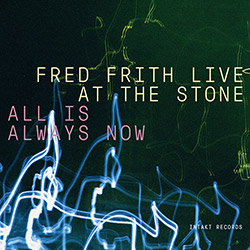
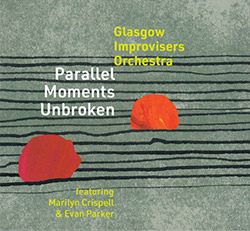





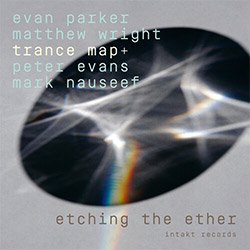
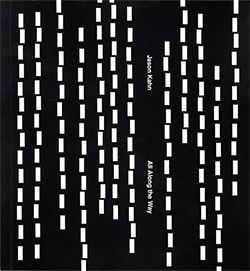
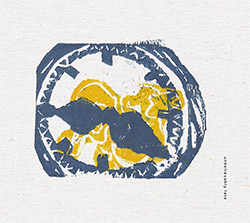

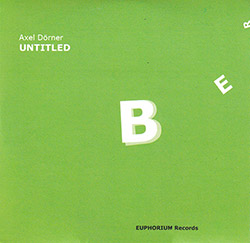


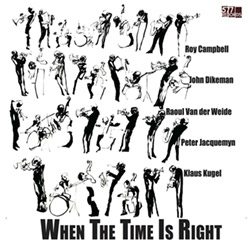

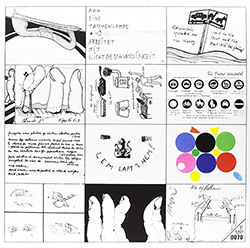
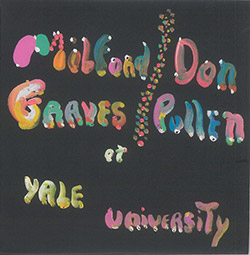
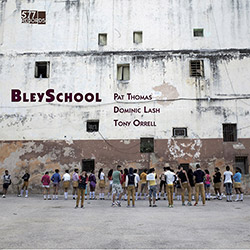

![Rodrigues, Ernesto / Nuno Torres / Guilherme Rodrigues: Whispers In The Moonlight - In Seven Movements [2CDs]](https://www.teuthida.com/productImages/misc4/35765.jpg)



![Cocks, Laura: FATHM [VINYL]](https://www.teuthida.com/productImages/misc4/36055.jpg)










![Ackerley / Prymek / Turner: All Hope With Sleeping Minds [CASSETTE]](https://www.teuthida.com/productImages/misc4/35950.jpg)
![Myers, David Lee : Tin Drop Tear [BOOK w/ DOWNLOAD]](https://www.teuthida.com/productImages/misc4/36030.jpg)



![Schindler, Udo / Sandy Ewen / Damon Smith: Munich Sound Studies Vols. 4, 5 & 6 [3 CDs]](https://www.teuthida.com/productImages/misc4/35966.jpg)






![Turbulence Orchestra & Sub-Units: Smear Out the Difficulties (Double Live) [2 CDs]](https://www.teuthida.com/productImages/misc4/36048.jpg)
![Perelman, Ivo / Tyshawn Sorey: Paralell Aesthetics [2 CDs]](https://www.teuthida.com/productImages/misc4/35871.jpg)


![Sjostrom, Harri: SoundScapes #4 Festival Berlin 2023 [3 CDs]](https://www.teuthida.com/productImages/misc4/35874.jpg)



![Glenn, Jordan: Flustered [CASSETTE]](https://www.teuthida.com/productImages/misc4/35948.jpg)


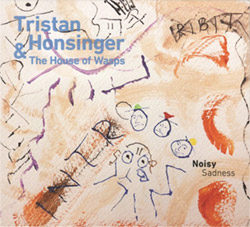
![Lindorff-Ellery, Evan: Church Recordings from Monhegan [CASSETTE]](https://www.teuthida.com/productImages/misc4/35949.jpg)
![Schindler, Udo / Werner Dafeldecker / Gunnar Geisse: Travelling Sound Images - Cognitive Transfers [Trio]](https://www.teuthida.com/productImages/misc4/35767.jpg)

![Egberth, Dennis: The Dennis Egberth Dynasty [VINYL]](https://www.teuthida.com/productImages/misc4/35549.jpg)


![Schindler, Udo / Rieko Okuda / Eric Zwang Eriksson: Disturbed Terrains [2 CDs]](https://www.teuthida.com/productImages/misc4/35330.jpg)






![Olencki, Weston : Pearls Ground Down To Powder [VINYL]](https://www.teuthida.com/productImages/misc4/35956.jpg)
![Myers, David Lee: Oculus [2CDs]](https://www.teuthida.com/productImages/misc4/35857.jpg)


![dustsceawung: dustsceawung [CASSETTE w/ Download]](https://www.teuthida.com/productImages/misc4/35753.jpg)




![Halls of the Machine: Atmospheres For Lovers And Sleepers [CASSETTE w/ DOWNLOAD]](https://www.teuthida.com/productImages/misc4/35806.jpg)



![AHC (Alexander Cooper): Lase [2 CDs]](https://www.teuthida.com/productImages/misc4/35754.jpg)



![Fagaschinski, Kai / Yan Jun : Graveyard Processions [VINYL w/ DOWNLOAD]](https://www.teuthida.com/productImages/misc4/35474.jpg)
![Brant, Cody / Carl Kruger: Smoke Detail [CASSETTE w/ DOWNLOAD]](https://www.teuthida.com/productImages/misc4/35551.jpg)








![Zorn, John / JACK Quartet: The Complete String Quartets [2 CDs]](https://www.teuthida.com/productImages/misc4/35609.jpg)

![Lonsdale, Eden: Dawnings [2 CDs]](https://www.teuthida.com/productImages/misc4/35480.jpg)







![Sanna, Claudio: Compositori Sardi Contemporanei II [2 CDs]](https://www.teuthida.com/productImages/misc4/35317.jpg)







![Zurria, Manuel: Fame di Vento [3 CDs]](https://www.teuthida.com/productImages/misc4/35167.jpg)

![Granberg, Magnus / Nattens Inbrott / Skogen: Holde Traume, Kehret Wieder! [2 CDs]](https://www.teuthida.com/productImages/misc4/35038.jpg)

![Electric Bird Noise / Derek Roddy: 8-10-22 [CD EP]](https://www.teuthida.com/productImages/misc4/35970.jpg)








![Elephant9 : Mythical River [VINYL]](https://www.teuthida.com/productImages/misc4/34624.jpg)



![Elephant9 with Terje Rypdal: Catching Fire [VINYL 2 LPs]](https://www.teuthida.com/productImages/misc4/35355.jpg)
![Deerlady (Obomsawin, Mali / Magdalena Abrego): Greatest Hits [VINYL]](https://www.teuthida.com/productImages/misc4/34876.jpg)







![Surplus 1980: Illusion of Consistency [CD]](https://www.teuthida.com/productImages/misc4/35069.jpg)
![Staiano, Moe: Away Towards the Light [VINYL + DOWNLOAD]](https://www.teuthida.com/productImages/misc4/35037.jpg)



![Caveira (Gomes / Sousa / Abras / Ferrandini): Ficar Vivo [VINYL]](https://www.teuthida.com/productImages/misc4/34643.jpg)
![Coley, Byron: Dating Tips for Touring Bands [VINYL]](https://www.teuthida.com/productImages/misc4/17906.jpg)

![Lost Kisses: My Life is Sad & Funny [DVD]](https://www.teuthida.com/productImages/misc4/lostKissesDVD.jpg)